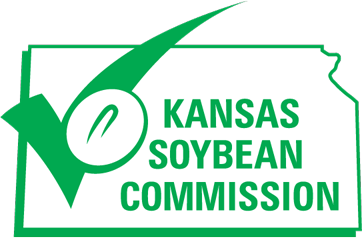Kansas Soybean celebrates delicious, nutritious soy foods this April
April 5, 2023 – April is Soy Foods Month – the perfect time for soy enthusiasts across the United States to highlight the numerous foods that soy can bring to the table. The Kansas Soybean Commission is joining with health professionals, U.S. soybean farmers, and soy organizations to celebrate the nutritional benefits and health merits of soy.
“Soy foods offer versatility to fit into any meal on the dinner table while also boosting human health through high-quality protein, fiber and other nutritional characteristics,” Bob Haselwood, a Kansas Soybean Commissioner from Berryton, says.
Haselwood, who is involved with the World Initiative for Soy in Human Health and currently serves as the board’s treasurer, adds, “Soy foods also offer a global solution to the nutritional challenges facing segments of our world population.”
Soy delivers high-quality, complete plant protein with a variety of other vitamins and minerals, and it is the only plant protein that carries U.S. Food and Drug Administration’s (FDA) heart health claim confirming it may be able to reduce the risk of coronary heart disease. Soybean oil, commonly labeled as vegetable oil, is the most widely consumed edible oil in the U.S., accounts for more than 40% of the U.S. intake of both essential fatty acids, and is a source of vitamin E.
Health professionals are confident recommending soy to their patients and clients. In the 2022 Annual Health Professional Survey conducted by Soy Connection, 90% of the respondents say they have recommended soy to their clients, and 41% say they recommend it weekly. Soy foods, like tofu, edamame, tempeh, and soymilk, are found in most grocery stores, and soy-derived ingredients can be found in many shelf-stable foods like nutrition bars, cereals, and beverages.
“Our understanding of the health benefits that soy can provide continues to expand,” says Mark Messina, PhD, SNI Global Director of Nutrition Science and Research. “Over the last 30 years, researchers have found that soy protein and soybean oil can benefit heart health. Additionally, soy protein promotes gains in muscle mass and strength to the same extent as animal protein and intriguing research suggests consumption of soy foods early in life reduces risk of developing breast cancer.”
Celebrate Soy Foods Month by incorporating more soy protein and soybean oil into your diet. Here are a few ideas:
- Try new soy foods! Tofu isn’t the only soy-based food at the grocery store. Enjoy popping edamame out of the pods for a snack or add some protein into your pancakes with soy flour.
- Simple swaps: Start your day with a soy-based yogurt or serve soymilk with your favorite breakfast cereal. Fortified soymilk is the only non-dairy plant milk recommended by recent U.S. Dietary Guidelines as a suitable alternative to cow’s milk.
- Seek out soy on the label: Most vegetable oil on store shelves is 100% soybean oil. Soybean oil is recognized for its heart health benefits, and it also has a neutral flavor and high heat stability, making it an excellent choice for cooking, baking, sautéing, and more.
The U.S. is a leading producer of soybeans. More than 500,000 U.S. farmers in 30 states harvested 86 million acres of soybeans in 2022. Those beans are grown with sustainability in mind.
“U.S. farmers are innovators and modern farmers, and everything we do on the farm to grow our crops better is what makes us sustainable. We are constantly improving the way we grow our soy,” said Nancy Kavazanjian, U.S. soybean farmer and United Soybean Board director.
By 2025, U.S. soybean farmers aim to reduce land use impact by 10%, reduce soil erosion an additional 25%, increase energy use efficiency by 10%, and reduce total greenhouse gas emissions by 10%. Through soil and water conservation, crop rotation, and carbon net neutrality goals, U.S. soybean farmers are growing nutritious foods while being good stewards of the planet.
To learn more about how and why to incorporate soy foods in the diet, visit ussoy.org.


